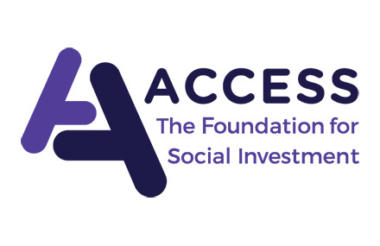Ed Anderton of the Access Foundation talks about how his foundation will help charities access social investment.
The Access Foundation, set up in 2015, exists to make it easier for charities and social enterprises in England to access the capital they need to grow and increase their impact. Our capacity-building programmes will provide grants and support to help organisations prepare to take on an investment, particularly those taking the step into this world for the first time.
The Growth Fund, meanwhile, is establishing a range of small loan funds, many of which will have a specific regional or thematic focus, and in some cases will see wouldbe social lenders managing a loan fund for the first time. So on both the “demand” and “supply” sides, Access is working to widen the range of organisations which are able to benefit from social investment. We know that this is not an easy task and that social investment has not always felt relevant to many charities and social enterprises. We’ve had plenty of feedback on how to meet these challenges, particularly via the consultation exercise we ran in the second half of last year.
The Doncaster Deaf Trust highlighted how far away from this part of the funding world some social organisations feel: “Loans frighten people to death. The message, all the way through, is confused by the talk of grants and loans in the same breath. The language needs to be much simpler.”
In order to provide such clarity and simplicity, we’re pleased to be supporting goodfinance.org.uk, a project to develop information services in collaboration with Big Society Capital and a range of partners representing the social sector.
UnLtd’s Tom Fox, meanwhile, captured in three words – “bespoke, not standardised” – a common view of how further support should be delivered. Or as Jane Hartley from VONNE put it: “Provision needs to be available locally and tailored to the scale of the organisation…one size doesn’t fit all.”
Time pressure is also an issue as senior staff attempt to get to grips with sustainable funding options such as social investment. “[Organisations need] core funding from the chief executive down to allow ‘business as normal’ whilst senior staff focus on developing its future business,” said Mandy Douglas from RLSB.
Finally, a central challenge for the next phase of the development of the social investment market is supporting organisations to better manage their impact. We and our delivery partners will be practising what we preach: clearly setting out what we’re aiming to achieve, measuring whether we’re succeeding, and sharing what we’re learning as widely as possible.
Ed Anderton is strategy and policy manager at Access – the Foundation for Social Investment









